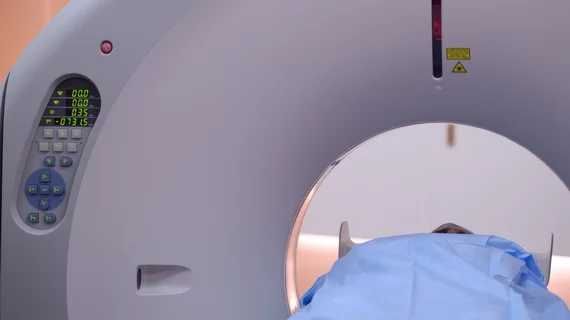NIH releases public dataset of 32K annotated CTs
The National Institutes of Health (NIH)’s Clinical Center released a large-scale database of 32,000 annotated CT images last week in an effort to improve the detection accuracy of lesions, the NIH announced in a statement.
Most public imaging datasets contain fewer than 1,000 samples, according to the statement, but the NIH’s set—known as DeepLesion—represents four times that in patient size alone. The tens of thousands of CTs from various parts of the body represent 4,400 patients, all of whom are research partners at the NIH.
DeepLesion was constructed using data from radiologists at the Clinical Center, who interpreted CT images and marked clinically significant findings on the scans. Those findings were tagged with electronic “bookmarks” which serve as markers against which radiologists can measure future growth.
The researchers on the project said they hoped the CT database would help physicians more accurately measure and identify lesions across the body, mine and study the relationships between different types of lesions and possibly develop a universal lesion detecting tool.
“The conventional methods for collecting image labels like a search engine does cannot be applied in the medical image domain,” the NIH’s statement read. “Medical image annotations require extensive clinical experience—but, that could change. The dataset released is large enough to train a deep neural network; it could enable the scientific community to create a large-scale universal lesion detector with one unified framework.”
The NIH said the Clinical Center team plans to continue expanding the dataset and improving its detection accuracy.
“The universal lesion detecting capability will become more reliable once researchers are able to leverage 3D and lesion type information,” officials wrote. “It may be possible to further extend DeepLesion to other imaging modalities such as MRI and combine data from multiple hospitals, as well.”

